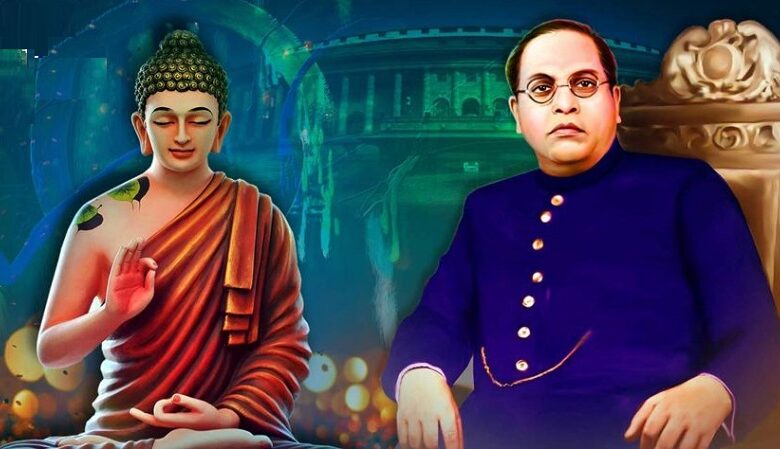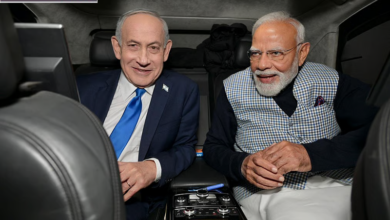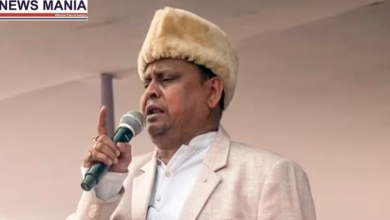Why lower castes embrace Buddhism as path shown by Ambedkar
The Gujarat government has said conversions from Hinduism to Buddhism require prior approval from the district magistrate under provisions of the Gujarat Freedom of Religion Act, 2003 (GFRA).

The Gujarat government has said conversion to Buddhism will require prior approval of the authorities. Buddhism’s egalitarian appeal has long attracted the oppressed in Hinduism.
Every year, thousands of Dalits in Gujarat (and elsewhere) convert to Buddhism, often en masse. Ramesh Banker, secretary of the Gujarat Buddhist Academy media that at least 2,000 people, mostly Dalits, converted to Buddhism in Gujarat in 2023.
The most famous Dalit convert to Buddhism in independent India is Dr B R Ambedkar, who embraced Buddhism along with lakhs of followers in 1956. But the history of lower castes turning to Buddhism goes much further back in history.
Conversion for emancipation
Buddhism rejected the institution of caste that formed the backbone of Vedic society. Dr Ambedkar wrote: “Buddhism was a revolution. It was as great a Revolution as the French Revolution.” (Revolution and Counter-Revolution in Ancient India, an incomplete manuscript published in 2017).
Buddhism eventually declined in India (even as it flourished in East and South-East Asia), and caste society prevailed for another couple of millenia. In the 19th and 20th centuries, however, radical intellectuals from oppressed castes once again started to harken to Buddhism in their bid to challenge the Brahmanical hegemony.
Among them was Iyothee Thasar in the Tamil region, who imagined a Dravidian identity with roots in a Buddhist past. In Malayalam-speaking areas, reformers such as Mitavadi Krishnan and Sahodaran Ayyappan proposed leaving Hinduism as a political tool to negotiate the rights of the lower castes.
In the early decades of the 20th century, as India saw various social reform movements, the threat of conversion played an important role in negotiations for rights such as temple entry, right of way, anti-untouchability legislation, and the promotion of inter-dining and inter-caste marriages.
Dr Ambedkar told a gathering of Mahars in Mumbai in 1936: “I tell you all very specifically, religion is for man and not man for religion. To get human treatment, convert yourselves.”
After spending decades studying Buddhism, and coming up with his own radically anti-caste, rationalist version, Ambedkar converted to Buddhism on October 14, 1956, along with over 3.6 lakh followers.
Since then, the practice of lower castes converting to Buddhism has become prevalent across the country, not only seen as an avenue for emancipation, but also as the path taken by Dr Ambedkar.
Buddhism’s promise of equality
Buddhism emerged in the fifth century BCE, out of the teachings of Siddhartha Gautama (c. 6th-5th century BCE). According to Buddhist tradition, Gautama, son of the chief of the Sakya kingdom, in present-day Nepal, became a wandering ascetic after becoming disillusioned with the world around him. He started preaching a novel doctrine and, after his death, his followers created a congregation to pass down their teacher’s words — and thus, a new religion was born.
Buddhism’s growth has been viewed by scholars as a response to the orthodoxy of the prevailing Vedic religion. L P Gomes wrote in The Encyclopedia of Religion (ed. Mircea Eliade, 1989): “The roots of Indian Buddhism are to be found in the shramanic movement of the sixth century BCE… [The shramanas] set religious goals that stood outside and in direct opposition to the religious and social order of the brahmanas”. Jainism is the other major religion to have emerged in a similar social setting, albeit slightly earlier than Buddhism.
Buddhism started off as a non-ritualistic religion that rejected the elaborate animal sacrifices of the Vedic religion, and was more accessible to the laity. The Buddhist sangha (monastic order), which formed soon after The Buddha’s death, was open to people from all sections of society, including the so-called “untouchables”.
(This story has not been edited by News Mania staff and is published from a Media Release)






